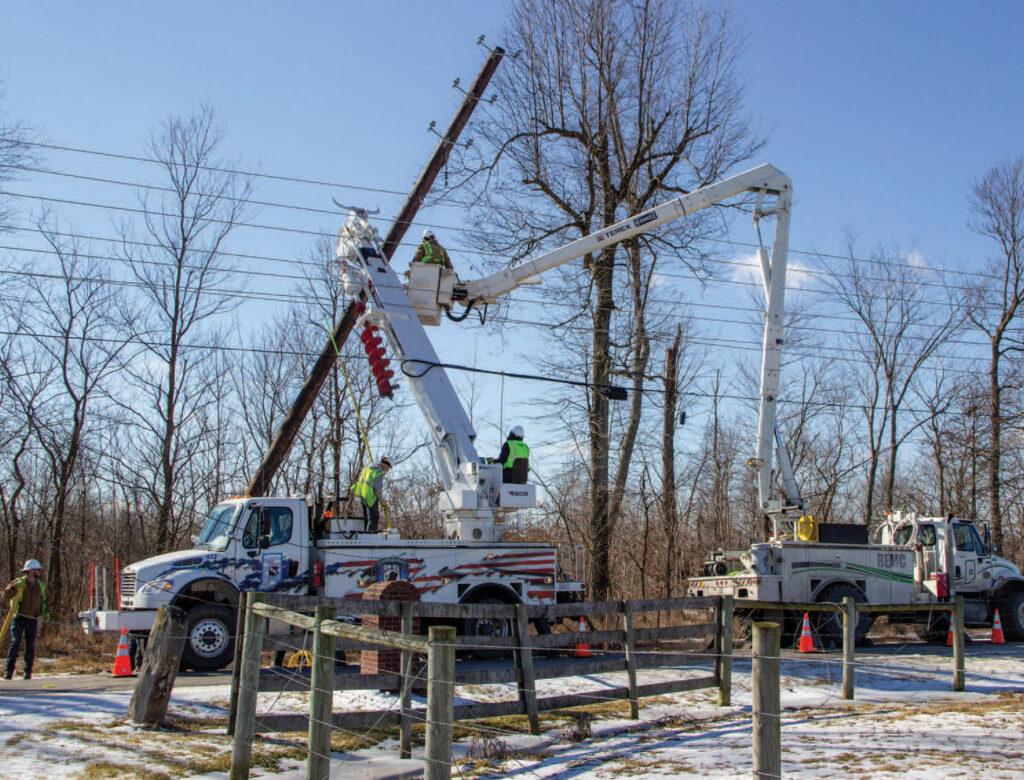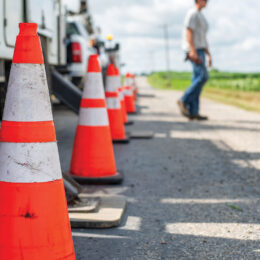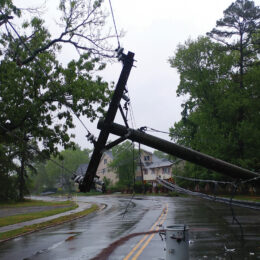Each season brings new opportunities and new weather concerns for Hoosiers. A winter day in Indiana can bring heavy snow, freezing rain, ice storms, and strong winds. These forms of winter weather can create electrical hazards.
“It’s important for Hoosiers to make sure they’re taking steps to be safe around electricity all year long, regardless of the weather outside,” said Jon Elkins, vice president of safety, training and compliance at Indiana Electric Cooperatives. “During winter, when snow and ice accumulation on power lines may cause them to snap or lead to poles breaking, people need to be particularly mindful of the dangers of live power lines.”
Power line safety
Here are some things to keep in mind with power lines and winter weather:
- Be sure to stay at least 35 feet away from a downed line. That’s about the length of three cars.
- Don’t touch the power line or anything in contact with it.
- Call 911 and tell others nearby to stay away.
- You should consider all downed lines live and dangerous. You or others could suffer serious injury or death.
Safety kits for your home and vehicle
It’s helpful to have winter storm safety kits for your home and on the go. You never know when you might be stuck at home for days, possibly some of that time without power, or get stranded on the roadway.
For your at-home kit, you will want at least two weeks of supplies, including:
- Bottled water
- Non-perishable food
- Emergency blankets
- First aid kit/medicine
- Flashlights
- Battery-operated or hand-crank radio
- Extra batteries
- Toiletries
For your vehicle, consider preparing a go-kit with at least three days of supplies to get you through the winter with these items:
- Blankets
- Warm clothes
- Jumper cables
- Bottled water
- Non-perishable food
- Sand or kitty litter to help with tire traction
- Critical backup batteries
- Chargers for your devices
If you lose power
During a winter storm, you may find yourself without power at home. If so, try to keep warm air in and cool air out by not opening doors to unused rooms and only opening doors to the outdoors if absolutely necessary.
Another thing to keep in mind with an extended outage is food safety. If the refrigerator reaches temperatures above 40 F, foods can become unsafe. You can help keep foods colder longer by leaving the refrigerator and freezer doors closed as much as possible.
Sources: American Red Cross, Ready.gov, Electrical Safety Foundation




